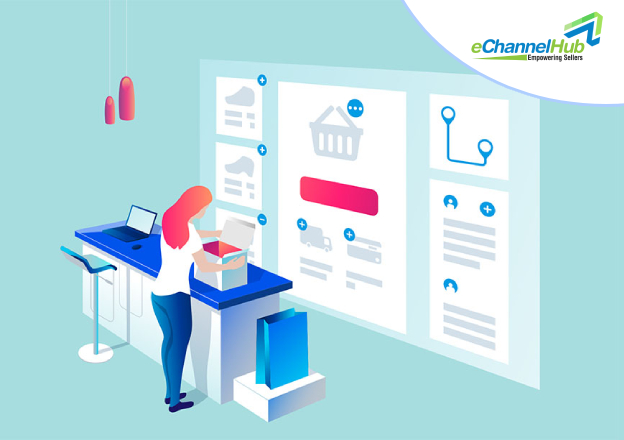Building Scalable and Secure E-Commerce Sites with Shopware Developers

E-commerce is booming. With global sales expected to reach $7.4 trillion by 2025, businesses are rushing to set up online stores. But creating an e-commerce site that can handle heavy traffic while also being secure is no easy task. This is where Shopware developers come in.
Shopware is an open-source PHP and JavaScript-based e-commerce platform. It gives developers the tools to build custom online stores tailored to each business’s needs. Shopware experts know how to architect sites that can scale up to meet surges in traffic. They also know how to code in security from the start, helping protect customer data and transactions.
In this article, we’ll explore the best practices Shopware developers use to create stable, secure e-commerce sites. We’ll look at strategies for horizontal and vertical scaling. We’ll also dive into common web vulnerabilities and how to prevent them. By the end, you’ll understand how Shopware developers design robust systems to power modern online retail.
Scaling Shopware Sites for Growth
Shopware sites must be built to handle spikes in traffic volume. A site that can’t scale risks losing customers and revenue during peak periods. Shopware developers have several techniques to make sites vertically and horizontally scalable.
- Implement caching strategies like Redis or Varnish to reduce database lookups and improve performance. Optimize cache invalidation rules.
- Use a CDN to distribute static assets across edge servers closer to users. Configure for caching assets like images, CSS, and JavaScript.
- Add more app servers and use a load balancer to distribute requests. Auto-scale server capacity up or down as needed.
- Optimize database queries and indexes. Master-slave replication can offer read scalability. Use Redis for caching DB calls.
- Enable queuing of non-urgent tasks like emails and reporting with RabbitMQ or Redis. Take load off main servers.
- Monitor key metrics like traffic, bandwidth, database load. Set up auto-scaling rules and alerts. Review regularly.
Securing Shopware Sites Against Threats
Shopware sites handle sensitive customer data. This makes security a top priority for developers. They need to build in protections against common web application vulnerabilities. Failure to secure sites can lead to data breaches, fraud, and loss of customer trust.
Developers use tools like static analysis and penetration testing to find flaws. They prevent issues like SQL injection and cross-site scripting by following coding best practices. Proper authentication, access controls, and encryption of data in transit and at rest are implemented.HTTPS and strict transport security ensure connections are encrypted. Regular patches and updates harden the software. Security Headers thwart common attacks. Monitoring systems watch for suspicious activity and intrusion attempts. Developers also plan for security incident response, training staff and documenting procedures. With vigilance and the right methods, Shopware experts design systems resistant to most criminal threats.
Also Read: How to Become a Successful Seller on Sears Marketplace
Developing Advanced Features with the Shopware API
The open architecture of Shopware enables developers to customize and extend sites in powerful ways. The Shopware API allows modifying or adding new functionality as needed. Developers use the API capabilities to create unique e-commerce experiences tailored to each business.
Shopware plugins and themes give control over look, feel, and functionality of stores. Developers can leverage the API to integrate custom product options, payment gateways like Stripe, shipping carriers, and more. The API-first approach means sites can be decoupled from the frontend, enabling headless Shopware for use with different storefronts.
- Plugins and Themes – The API allows installing and managing plugins and themes to customize storefronts, change functionality, and modify styles. Developers can build and distribute their own plugins and themes.
- Custom Product Options – Add custom product variants, options, and attributes through the API like engraved text, extra colors, or size charts. Helps create unique and flexible catalog options.
- Payment Integrations – Integrate custom payment gateways like Stripe, Authorize.Net, or PayPal through the API. Handles tokenization, charges, refunds, and transaction management.
- Shipping Integrations – Build connections to shipping carriers such as UPS, FedEx, and DHL through the API. Enables real-time rate quotes, shipping label generation, tracking APIs, etc.
- Headless Shopware – Leverage Shopware as a decoupled headless backend by accessing data and functionality through the API. Build custom storefronts, progressive web apps, custom clients.
- CRUD Operations – The API supports full create, read, update, delete operations for core entities like products, customers, orders, carts, etc. Build custom admin interfaces.
- Authentication and Authorization – Robust auth options like OAuth, API keys, basic auth. Role-based permission system for fine-grained control over access. Rate limiting prevents abuse.
Conclusion
Shopware empowers developers to build e-commerce sites tailored to each business’s unique needs. With its flexible API and scalable architecture, Shopware sites can grow from small stores to enterprise marketplaces. Developers use best practices to architect sites for security, stability and performance from the start.
In this article, we covered key strategies Shopware developers employ to create robust e-commerce systems. From caching and auto-scaling for growth to threat modeling and encryption for security, Shopware provides the tools. With knowledgeable Shopware developers at the helm, companies can confidently move their businesses online, knowing the sites can handle whatever the future brings. The expertise of Shopware coders allows brands to focus on sales and marketing, trusting the technology will support their success.
Write For Us
Gain multichannel inventory visibility and control with eChannelHub
Learn more about eChannelHub with a free demo, tailored for your unique retail business.
Request A DemoRequest a Demo
Gain multichannel inventory visibility and control with eChannelHub
Learn more about eChannelHub with a free demo, tailored for your unique online business




